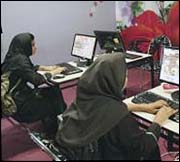
ABOVE: Ulrich Davis Mugshot
On May 15, Ulrich Davis, a citizen and resident of the Netherlands, was sentenced to six months in prison and a $2,000 fine. He was charged with violating a Temporary Denial Order issued by the Bureau of Industry and Security (“BIS”).
The TDO in question was issued on October 1, 2007, against Aviation Services International, B.V., in the Netherlands, as well as affiliated and related individuals and entities in the Netherlands. Cyprus, and the UAE, and arose out of allegations that the parties subject to the TDO had shipped U.S. origin items to Iran. According to the Criminal Information, which served as the basis for Davis’s plea, Davis provided freight forwarding services involved in the export of acrylic adhesives and spray-paint coatings” from a company in the United States to an unspecified company listed on the TDO. All actions charged in the Criminal Information were undertaken by Davis entirely within the Netherlands and outside the United States.
The reason that Davis wound up being hauled in front of a U.S. federal district court and charged with violating U.S. criminal laws is that he traveled to the United States and was arrested at Newark Liberty Airport on his way back to the Netherlands from the United States. The U.S. takes the position that it has criminal jurisdiction over all persons, regardless of location and citizenship, for crimes arising out of their dealings with U.S. origin goods. This is not a position recognized by many other foreign countries, meaning that it would be unlikely that Davis could have been extradited from the Netherlands based on the actions alleged in this case, which all took place in the Netherlands and which did not violate Dutch law. But once he was in the United States — and voluntarily at that — whether he was extraditable under Dutch law was, at best, a moot point.
Moral of the story: if you live outside the United States and sell U.S. goods to Iran, postpone indefinitely any plans to visit Disneyland. (There is no indication of why Davis was in the United States. The reference to Disneyland is for illustrative purposes only.)

 Posted by
Posted by  Category:
Category: 

 Last week the Bureau of Industry and Security (“BIS”)
Last week the Bureau of Industry and Security (“BIS”) 
 In the last release of civil penalty information, the Office of Foreign Assets Control (“OFAC”)
In the last release of civil penalty information, the Office of Foreign Assets Control (“OFAC”)  This blog
This blog 

